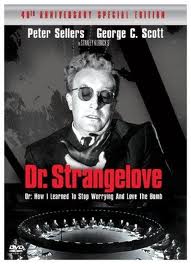
Pilot summary:
The Wetherly family — husband Tom (William Devane), wife Carol (Jane Alexander), and children Brad (Ross Harris), Mary Liz (Roxana Zal), and Scottie (Lukas Haas) — live in the fictional suburb of Hamlin, California, within a 90-minute drive of San Francisco, where Tom works.
On a routine afternoon, Carol, who is a stay-at-home mom and volunteer for school functions (such as directing the school play), listens to an answering-machine message from Tom saying he’s on his way home for dinner. Scottie is watching Sesame Street on TV when the show is suddenly replaced by white noise. Suddenly a news anchor comes on to announce the cause:
“This is San Francisco. We have lost our New York signal. Radar sources confirm the explosion of nuclear devices, there, in New York, and up and down the East Coast. Ladies and gentlemen, this is real. This is …”
The anchorman is cut off by the Emergency Broadcast System tone. An announcer states that the White House is interrupting the program and asks people to stay off their phones. At the introduction of the President of the United States (who is never seen), the phone rings but goes dead just as Carol answers it. The flash of a nuclear detonation is then seen through the window.
The family huddles on the floor as the town’s air-raid sirens go off. Minutes later, several of their neighbors are running around in a panic. They hope Tom will return, but his absence and the reason behind it are hard to ignore.
Hamlin survives unscathed because apparently the town is far enough from San Francisco to avoid blast damage. The attack is never explained.
Frightened residents meet at the home of Henry Abhart (Leon Ames). An elderly ham radio operator, Henry made contact with survivors in rural areas and internationally. He tells Carol that he was unable to reach anyone east of Keokuk, Iowa. A radio report told of an errant bomb hitting Yosemite National Park, causing trees and rocks to fall from the sky like rain. He also revealed that the entire Bay Area and most major U.S. cities were “radio silent.” The morning after the attack, they are joined by a child named Larry (Mico Olmos), who is soon part of the family, but later dies from radiation poisoning.
Despite Abhart’s efforts, no one knows the reason for the attack nor the responsible parties. Rumors from other radio operators in South America and Canada range from a Soviet preemptive strike to terrorism.
The school play, about the Pied Piper, was in rehearsal before the bombings. Desperate to recapture some normalcy the town decides to go on with the show. Earlier, life was normal. The parents smile and clap, but their smiles are forced.
Hamlin escaped bomb damage, but not the significant radiation from fallout. The day after the attack, the children notice “sand” on their breakfast plates.
Residents have to deal with losing municipal services, food and gas shortages and ultimately the loss of loved ones to radiation sickness. Scottie is the first to succumb. He is buried in the back yard. Carol screams at a Catholic priest (Philip Anglim) that she will not bury Scottie without his favorite, missing teddy bear. Wooded caskets need to be used for funeral pyres as the dead accumulate faster than they can be buried. Carol sews bed sheets together, making burial shroud for her daughter, Mary Liz, who also dies from radiation exposure. While many of the children die, older residents seem to fall to rapid dementia. One young couple, played by (Kevin Costner and Rebecca De Mornay), leave town after losing their infant, in hopes of finding safety elsewhere.

Carol’s search for battery causes her to listen once more to her husband’s final message on the answering machine. To her sorrow, she finds a later (and previously unheard) message on the machine from Tom. He had decided to stay at work late in San Francisco on the day of the attack, and she must give up her last hope that he will someday make it home.
Brad is forced into early adulthood helping his mother and taking over the radio for Henry Abhart, who also dies. A bully who tormented Brad is caught breaking into their home, Brad tries to fight him off, but Carol eventually scares him away. He manages to steal Brad’s bicycle, but Brad starts using his father’s bike and symbolically becomes the man of the house. The family adopts a mentally handicapped boy named Hiroshi (Gerry Murillo) when his father, Mike (Mako Iwamatsu), dies. Tom used to take Hiroshi fishing along with the other Wetherly kids.
One night, Carol is out when she sees a pile of bodies being burned. She stops, stares at the fire for a minute, and then breaks down and cries.
Carol, Brad and Hiroshi attempt suicide by sitting in the family’s station wagon with the garage door closed (carbon monoxide poisoning), but Carol cannot bring herself to do it. The three end up sitting by candlelight to celebrate a birthday, using a graham cracker in place of a cake. When asked what they should wish for, Carol answers: “That we remember it all … the good and the awful.” She blows out the candle. There are visions of an old silent film of a surprise birthday party for Tom, showing him as he blows out the candles on his cake.
Reference from wikipedia



